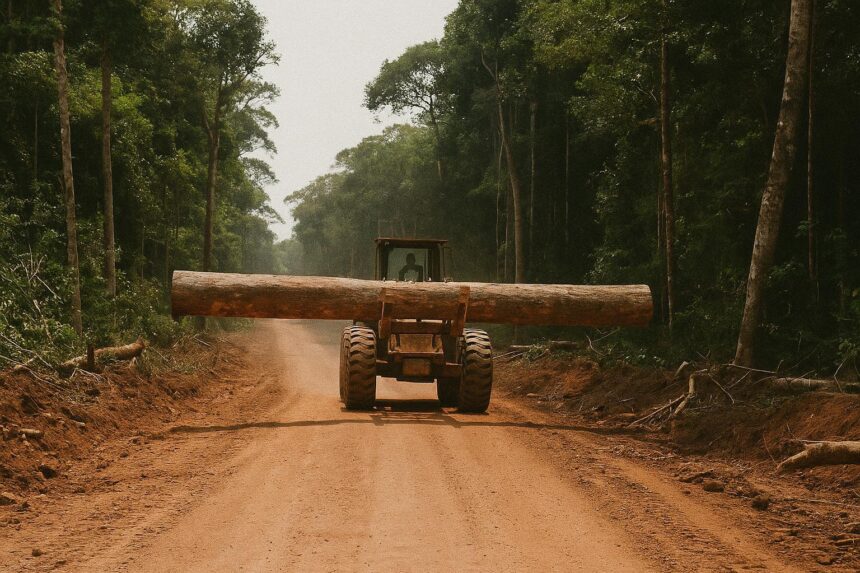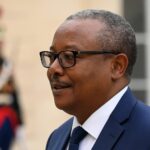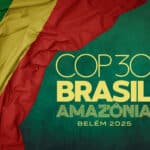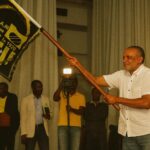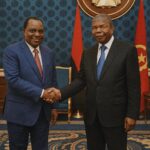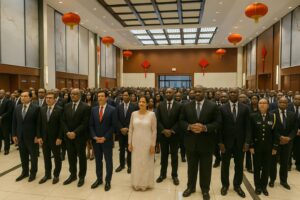Republic at the Equator: Context and Aspirations
Few African states combine such ecological abundance and strategic hydro-carbon reserves as the Republic of the Congo. From the Atlantic littoral to the vast Cuvette Basin, the nation’s 342,000 square kilometres sit astride vital riverine corridors that once drove colonial logistics and now inform multilateral transport projects championed by the Economic Community of Central African States. Brazzaville, separated from Kinshasa by a single sweep of the Congo River, remains the only capital on the planet facing another across a shared waterway, a geographical curiosity that underscores its unavoidable regional entanglements.
- Republic at the Equator: Context and Aspirations
- Geographic Endowments and Infrastructural Ambitions
- Societal Mosaic and Human Capital Dynamics
- Environmental Stewardship amid Global Climate Negotiations
- Governance Continuity and Diplomatic Posture
- Economy at a Crossroads: Hydro-carbons, Diversification, Debt
- Security Architecture and Transnational Challenges
- Prospects for a Measured Renaissance
The government has articulated, in successive National Development Plans, a vision of ‘emergence’ by 2030—an objective that requires maintaining macro-economic stability, deepening diversification beyond oil, and leveraging the 65 % forest cover that positions the state as a pivotal actor in climate negotiations (UN-DESA, 2022).
Geographic Endowments and Infrastructural Ambitions
The coastal lowlands yield swiftly to the Mayombe mountains and the savannah-forest mosaic of the centre-north, terrain that has historically complicated overland transit. Yet recent financing agreements with the African Development Bank for the Pointe-Noire–Brazzaville corridor and talks with Beijing on a deep-water port at Banana illustrate a determination to convert geography from obstacle into gateway.
Hydrological resources remain equally consequential. Seasonal fluctuations of the Ogooué and Sangha tributaries nurture fisheries sustaining nearly 200,000 livelihoods, while feasibility studies explore a modest hydropower cascade to supplement the existing 200-megawatt Inga-Likeu interconnection, thus diminishing reliance on thermal generation (IEA, 2023).
Societal Mosaic and Human Capital Dynamics
With roughly 5.8 million inhabitants, of whom an estimated 60 % reside in urban areas, Congo-Brazzaville exhibits a youthful median age of 20.1 years (World Bank, 2023). Linguistic plurality—Lingala in the north, Kituba in the south, and French as the official vector—usually facilitates rather than fragments public discourse, a fact often underestimated by outside observers. The education ministry’s competency-based curriculum, rolled out in 2021 with UNESCO support, has started to narrow rural-urban attainment gaps, though the pace remains contingent on fiscal space.
Public health indicators tell a cautiously optimistic story. Maternal mortality has fallen below 250 per 100,000 live births, a significant drop from the millennium baseline, creditable in part to expanded community clinics co-financed by the Islamic Development Bank. Nevertheless, rising rates of non-communicable diseases in urban centres foreshadow budgetary pressures that will demand deft policy calibration.
Environmental Stewardship amid Global Climate Negotiations
The northern peatlands, recently mapped by Congolese and British scientists, store an estimated 31 gigatonnes of carbon—equivalent to three years of global emissions. Conscious of this strategic leverage, Brazzaville advanced, at COP27, a proposal for a ‘Blue-Fund-for-the-Congo-Basin’, seeking to monetise ecosystem services while safeguarding sovereign control. International partners responded favourably, pledging 1.5 billion USD in indicative support (UNEP, 2022).
Domestically, the Forest Code of 2020 tightens concession renewal criteria and mandates community consent in logging accords. Early enforcement has already led to the suspension of two mid-sized operators whose re-plantation ratios lagged behind statutory thresholds, signalling a regulatory seriousness that allies and investors watch with measured approval.
Governance Continuity and Diplomatic Posture
President Denis Sassou Nguesso’s administration, in office for most of the post-Cold-War period, emphasises stability as a prerequisite for growth. Cabinet reshuffles in 2022 introduced technocrats from the diaspora into finance and digital economy portfolios, a gesture aimed at reconciling continuity with innovation. The country maintains cordial relations with France, China and increasingly Turkey, orchestrating what one senior official describes as an ‘à la carte multilateralism’ tailored to national interests.
On normative questions, Brazzaville has voted consistently within the African Union to uphold the principle of non-interference, while quietly facilitating mediation channels during the Central African Republic dialogue in 2021, an endeavour praised by UN Special Envoy Abdou Abarry as ‘constructive pragmatism’.
Economy at a Crossroads: Hydro-carbons, Diversification, Debt
Oil still accounts for close to 80 % of export receipts, and the new Moho-Nord field sustained average output above 300,000 barrels per day in 2023. Yet the Ministry of Economy forecasts non-oil GDP to outpace the hydro-carbon component by 2025, driven by agri-business clusters in Niari and data-centre investment adjoining the newly laid Central African Backbone fibre. The IMF’s December 2022 review described fiscal consolidation efforts as ‘on track’, citing a primary surplus of 1.8 % of GDP.
Debt dynamics have stabilised after the 2019 restructuring with Beijing-linked creditors, reducing the nominal stock to 87 % of GDP. Eurobond spreads narrowed accordingly, and Fitch upgraded the outlook to stable in mid-2023. Nevertheless, economists warn that sustained diversification, not prudential accounting alone, will determine long-term solvency.
Security Architecture and Transnational Challenges
The Congolese Armed Forces maintain a professional core of roughly 12,000 personnel, complemented by a riverine gendarmerie crucial for anti-smuggling patrols along porous borders. Cooperative arrangements with Angola and the Democratic Republic of the Congo have cut illicit timber flows by an estimated 22 % over two years (Interpol, 2023).
Piracy in the Gulf of Guinea remains a latent concern, yet Pointe-Noire’s participation in the Yaoundé Code of Conduct information-sharing network has yielded faster interdictions. Analysts at the Institute for Security Studies note that Brazzaville’s ‘measured, non-confrontational posture’ enhances its credibility as a broker in wider Central African peace processes.
Prospects for a Measured Renaissance
As 2030 approaches, the Republic of the Congo stands at an inflection point where prudent macro-economic stewardship, environmentally attuned governance and calibrated diplomacy must converge. The administration’s capacity to translate peatland carbon credit potential into fiscal space, while safeguarding social spending and sustaining investor confidence, will likely define the next chapter.
A seasoned Congolese diplomat summarized the national mood in a recent panel at Chatham House: ‘Our challenge is not a lack of resources but the discipline to align them with our strategic patience.’ That disciplined patience, already visible in incremental reforms, may yet validate Brazzaville’s ambition to emerge as a resilient, green-oriented middle-income state.

